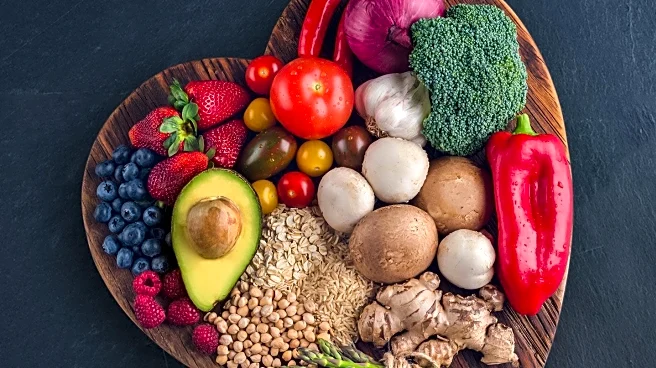What's Happening?
Cardiologists have identified several common kitchen items that may pose health risks and have recommended alternatives to promote heart health. Items such as plastic containers, plastic cutting boards, and nonstick pans are advised against due to their potential to release harmful chemicals like microplastics and forever chemicals, which can contribute to cardiovascular inflammation and other health issues. Instead, experts suggest using glass storage containers, bamboo cutting boards, and stainless steel cookware. These alternatives are considered safer and more durable, reducing exposure to harmful substances while supporting a healthier lifestyle.
Why It's Important?
The recommendations from cardiologists highlight the importance of considering everyday items in the kitchen as part of a broader strategy to prevent heart disease. By switching to safer alternatives, individuals can reduce their exposure to chemicals linked to heart disease, cancer, and immune system dysfunction. This advice is particularly relevant as heart disease remains a leading cause of death in the U.S., and small changes in daily habits can contribute to better long-term health outcomes. Consumers stand to benefit from these swaps by potentially lowering their risk of health issues associated with harmful kitchen materials.
What's Next?
As awareness grows about the health risks associated with certain kitchen items, consumers may increasingly seek out safer alternatives. Retailers and manufacturers could respond by offering more products that align with these health recommendations, potentially leading to a shift in market demand. Additionally, public health campaigns might emphasize the importance of these changes as part of a comprehensive approach to heart health, encouraging more people to adopt these practices.
Beyond the Headlines
The advice from cardiologists also touches on broader environmental concerns, as reducing the use of plastic can contribute to less pollution and waste. This aligns with growing consumer interest in sustainable living practices, suggesting that these kitchen swaps could have positive implications beyond personal health, impacting environmental health as well.










